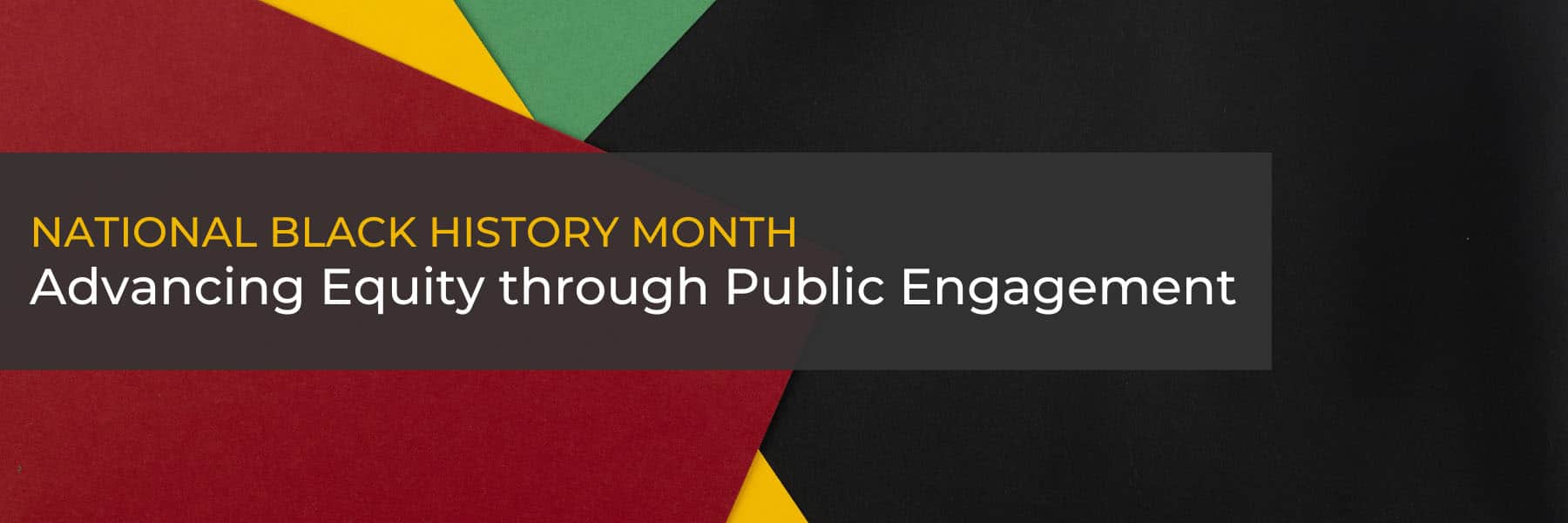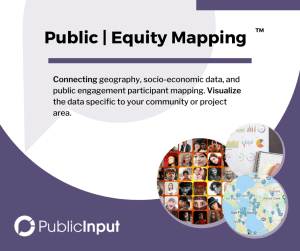
The annual observance of Black History month provides us with the perfect opportunity to reflect on the history and status of equity and growth around the nation that was founded on the idea
. . .that all of us are created equal and deserve to be treated with equal dignity throughout our lives. It is a promise we have never fully lived up to but one that we have never, ever walked away from.
– 2022 Presidential Proclamation
From the official recognition of the holiday in 1976 to today, many of us use February to recharge our memories and understand the equity-based lessons learned and experienced over time.
Each February, National Black History Month serves as both a celebration and a powerful reminder that Black history is American history, Black culture is American culture, and Black stories are essential to the ongoing story of America — our faults, our struggles, our progress, and our aspirations.
– 2022 Presidential Proclamation
Those in the business of government community engagement know all too well the “long shadow” of equity that has permeated the history of the U.S. Whether it be Jim Crow, redlining, or the “systemic racism that still diminishes our Nation today” we use the history of our country as a path of understanding our failures in order to grow and move forward.
. . .by facing those tragedies openly and honestly and working together as one people to deliver on America’s promise of equity and dignity for all, we become a stronger Nation — a more perfect version of ourselves.
– 2022 Presidential Proclamation
As we pause and remember, community engagement practitioners in every community are uniquely positioned to capitalize on the promise of the White House commitment to advancing equity. With 2022 ahead of us, planning and developing ways to enable equitable and racially just opportunities for community engagement are clearly needed.
Vice President Harris and I are deeply committed to advancing equity, racial justice, and opportunity for Black Americans as we continue striving to realize America’s founding promise.
Advancing Equity through Community Engagement
Whether it is to inform, educate, or solicit input, the ongoing need for governments to communicate and engage with their communities is not only the right thing to do, but the practice is rooted in both social science and law.
When it comes to the social science elements of community engagement, a recent paper focused on how scientific enterprise can be impacted by public involvement shows clear parallels to the public sector deliberative process.
The framework {figure 2} delineates a total of seven goals, ordered loosely based on the extent to which diverse publics might meaningfully exert influence on policy or scientific enterprise itself.

Building on the social science foundation also includes folding in the community engagement responsibilities that connect opportunities for advancing equity at the state, regional, and local levels. Here are few highlights:
REFERENCE
RESPONSIBILITY
SOURCE
The Civil Rights Act of 1964
Prohibiting discrimination on the basis of race, color, or national origin
Americans with Disabilities Act (ADA)
Prohibiting discrimination on the basis of disability
Pub. L. 101-336, 104 Stat. 327, as amended
NEPA
Early And Continuous Opportunities For Community Engagement
Limited English Proficiency (LEP)
Improving access to services for people with LEP
Need a cheat sheet? Download the PublicInput Engagement Compliance Checklist for a broader sampling of compliance and source information!
Want to learn more about the PublicInput Platform that is built for equity?




